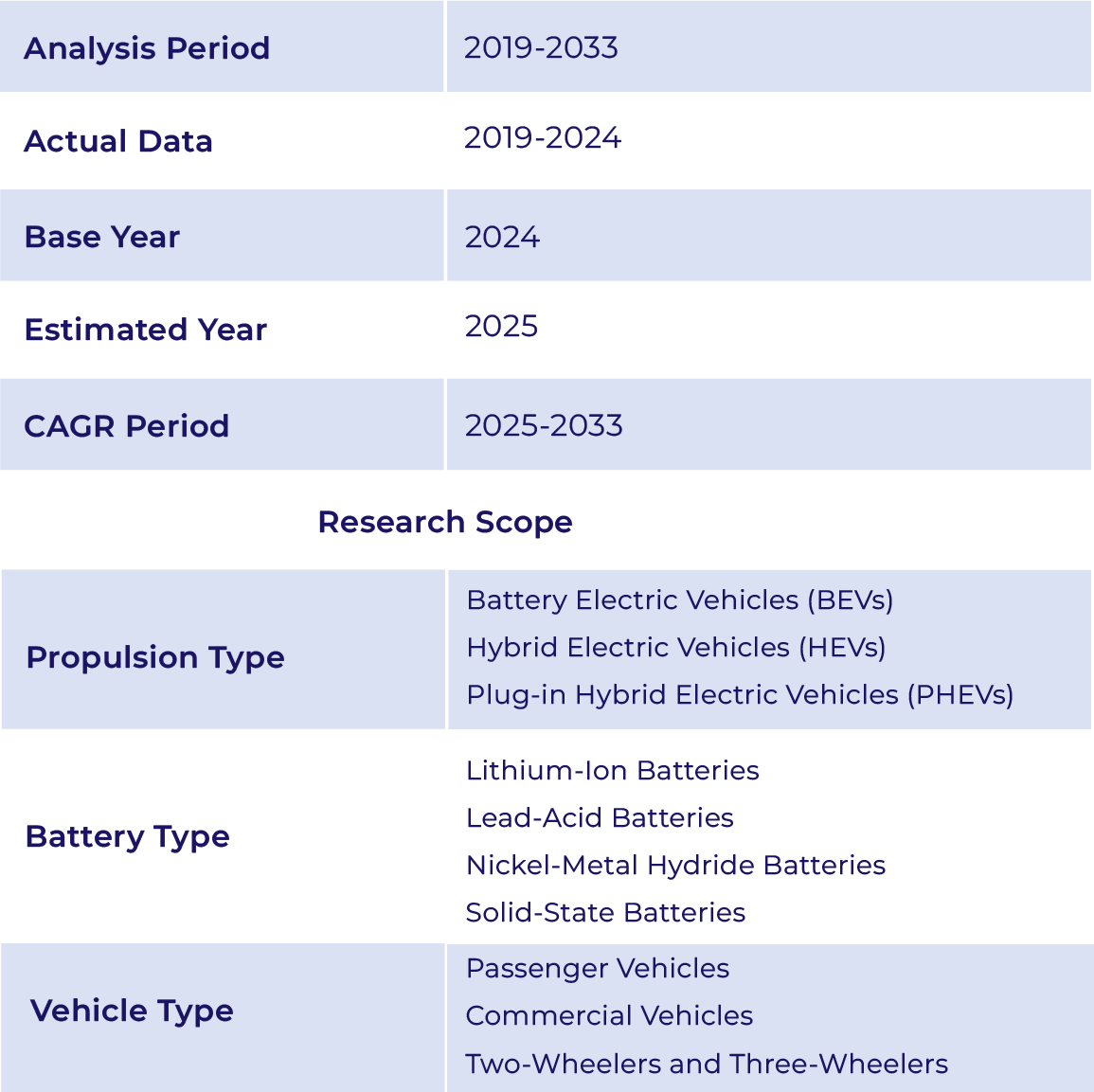UAE Electric Vehicle Battery Market Growth and Performance
- In 2024, the EV battery market in the UAE experienced notable year-on-year growth of XX%, reaching a total valuation of US$ XX million.
- It is forecasted to grow further at a compound annual growth rate of XX% through 2033, with the market size projected to hit US$ XX million.
UAE Electric Vehicle Battery Market Outlook
The United Arab Emirates (UAE) is positioning itself as a pivotal hub for electric vehicle (EV) battery production and recycling in the Middle East. A notable development is the establishment of the region's first EV battery recycling plant, a collaboration between LOHUM Cleantech, the Ministry of Energy & Infrastructure, and BEEAH Group. This facility aims to refurbish and recycle lithium-ion batteries, reintroducing valuable minerals into the circular economy and supporting the UAE's sustainability goals. Additionally, Statevolt Emirates is constructing a state-of-the-art battery gigafactory in Ras Al Khaimah with a capital expenditure of $3.2 billion. This venture is expected to produce up to 40 GWh of batteries annually, catering to the UAE and broader Middle East, India, and Africa (MEIA) regions. These initiatives align with the UAE's vision to increase the share of electric and hybrid vehicles to 50% of all sold vehicles by 2050, signalling a robust outlook for the EV battery market in the country.?
UAE Electric Vehicle Battery Market Drivers
The UAE's EV battery market is propelled by strategic investments and international partnerships. A significant driver is the $2.2 billion investment by CYVN Holdings, an Abu Dhabi-based investment vehicle, into Chinese EV manufacturer NIO. This funding enhances NIO's financial position, enabling advancements in EV technology and expansion into international markets, including the Middle East. Furthermore, the UAE government is actively fostering a conducive environment for EV adoption through regulatory incentives and infrastructure development. The establishment of the EV battery recycling plant and the construction of the battery gigafactory are direct outcomes of these supportive policies. These efforts are complemented by the UAE's rich energy resources, which provide a sustainable foundation for EV battery production and recycling, making the country an attractive destination for global EV manufacturers and investors.?
UAE Electric Vehicle Battery Industry Trends
One of the prominent trends in the UAE's EV battery industry is the growing emphasis on sustainability and the circular economy. The country is moving forward with a significant development in lithium battery recycling. The UAE has announced plans to open its first lithium battery recycling plant by 2027, which aims to recover critical raw materials from end-of-life batteries and reduce reliance on imports. This initiative is a part of the country's broader strategy to establish itself as a regional leader in sustainable energy practices. With this new facility, the UAE aims to not only address the growing demand for battery components but also mitigate environmental impact by promoting resource recovery and reuse. The UAE's strong focus on sustainability is further evident through these steps, which also aligns with the global push towards greener energy solutions.
UAE Electric Vehicle Battery Industry Development
In addition to its growing focus on sustainability, the UAE is also making significant strides in energy storage solutions. Statevolt Emirates, a key player in the country’s EV battery sector, has decided to pivot its focus from producing only EV batteries to also developing large-scale energy storage solutions. This shift is critical as it responds to the increasing demand for energy storage infrastructure required for renewable energy integration, in line with the UAE’s Vision 2050. The company plans to produce scalable storage solutions that will not only complement the electric vehicle market but also contribute to grid stability and energy distribution. The decision reflects the UAE's strategic foresight in diversifying its energy ecosystem and positioning itself at the forefront of sustainable energy technologies in the Middle East. The expansion into energy storage also opens new avenues for economic growth and technological innovation within the region.
UAE Electric Vehicle Battery Market Scope







